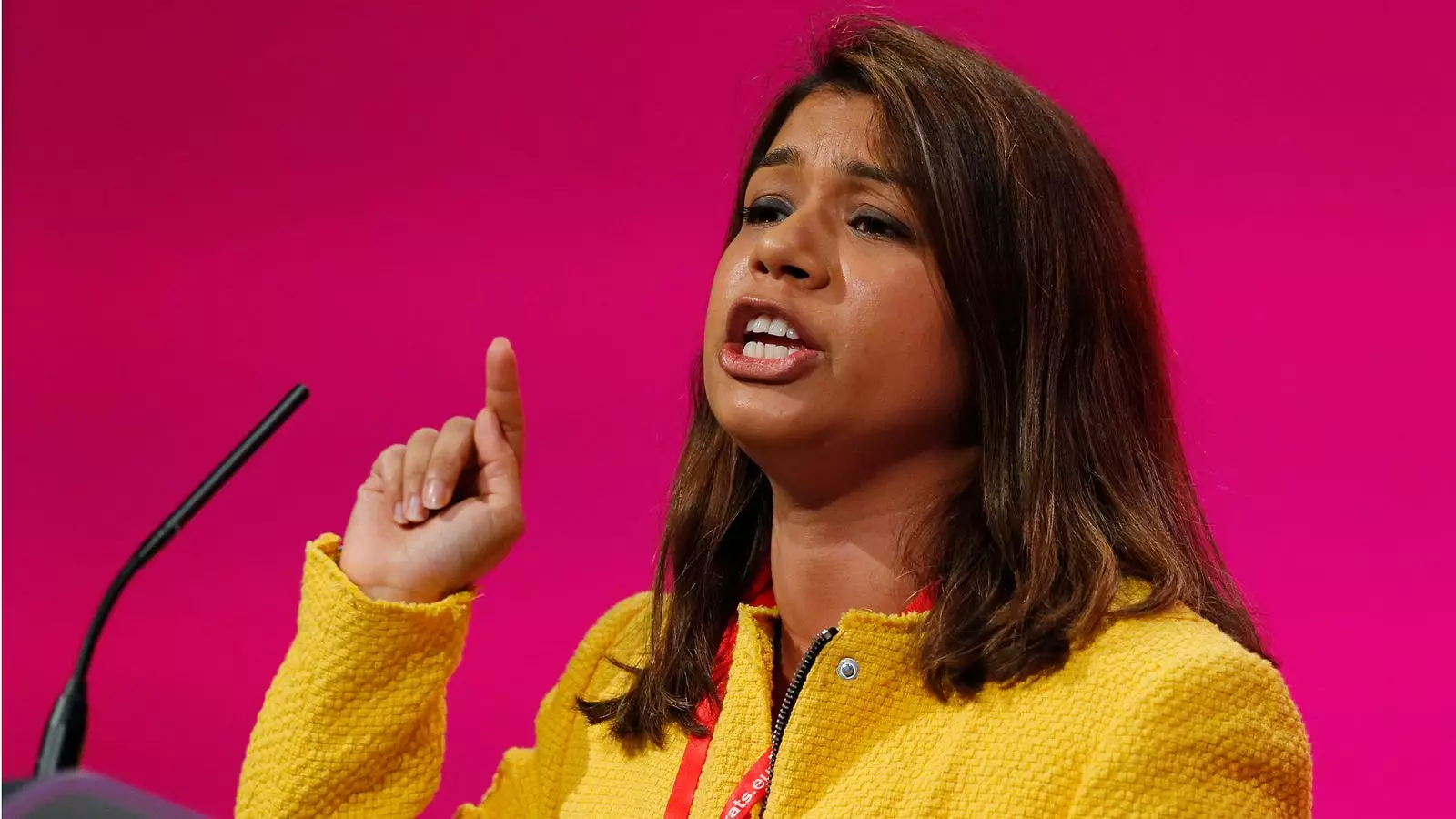In a stunning development in the realm of politics and anti-corruption, Tulip Siddiq, Bangladesh’s anti-corruption minister, has found herself embroiled in allegations of corruption that may significantly tarnish her reputation. Reports indicate that she may have played a role in the illicit allocation of land to her family members during her tenure as a Member of Parliament (MP). These claims have raised urgent questions about her integrity and the integrity of the political systems that oversee such matters.
The allegations emerged following the unveiling of an affidavit filed by Bangladesh’s Anti-Corruption Commission (ACC), which Sky News has reported on extensively. This legal document outlines accusations that Siddiq, while serving as an MP, used her position to influence land allocations favorably for her family within the Purbachal New Town Project, a significant urban development initiative near Dhaka. The affidavit suggests not only her direct involvement but also implicates members of her family, including her mother and siblings, in this unethical land acquisition scheme—a rather grave assertion for anyone in public office.
According to the document, Siddiq reportedly exerted considerable pressure on prominent political figures, specifically targeting her aunt, former Prime Minister Sheikh Hasina, to facilitate these land allocations. Such claims, if proven true, could signify serious misconduct and a blatant abuse of power, raising alarms about corruption within the highest echelons of government.
In response to the flood of accusations, the director-general of the ACC, Akhtar Hossain, remarked that there was a pattern of power misuse within the previously ruling Awami League party during Siddiq’s association with it. This acknowledgment not only links Siddiq to the broader narrative of corruption under the Awami League administration but positions her as a focal point in a political scandal that carries ramifications for her and her party.
While Siddiq has categorically denied the claims and insists that she has not been contacted regarding the allegations, the situation is compounded by a previous court case where she was named in connection to alleged embezzlement regarding a nuclear power project. The political dynamics in Bangladesh are notoriously volatile, and the rising tensions and accusations are all part of a larger struggle for power and accountability.
The ongoing turmoil is not just a personal issue for Siddiq; it reflects a larger crisis affecting Bangladesh’s political climate. With the resignation of Sheikh Hasina amid protests and civil unrest, the new government has initiated inquiries into the actions of her administration, heightening suspicions and accusations of past misdeeds. Critics argue that these developments are as much about power struggles as they are about genuine attempts at reform.
There’s also the added layer of Siddiq’s past actions, where she has publicly emphasized her connections to the Awami League. This visibility raises questions about her motivations and loyalties, not just within her own party but also amongst the broader electorate, who demand transparency and accountability from their leaders.
The potential implications of these allegations are substantial. As the current anti-corruption minister, Siddiq’s position mandates a level of moral clarity and ethical behavior. However, with serious inquiries surrounding her integrity leading to calls for her suspension from her ministerial role, the stakes have never been higher. Conservative leader Kemi Badenoch’s demands for Siddiq to step down underscore this sentiment, while the UK Anti-Corruption Coalition has added that her current portfolio related to money laundering and economic crime is profoundly compromised by the ongoing investigations.
This situation presents a critical juncture not only for Siddiq but for the government’s future direction in addressing corruption within Bangladesh. As experts like Peter Munro from the Anti-Corruption Coalition point out, the visibility of a conflict of interest further diminishes public trust, essential for any effective anti-corruption framework. The task ahead involves not only clarifying Siddiq’s standing but also reinstating faith in the mechanisms meant to curb corruption.
The cloud of corruption accusations surrounding Tulip Siddiq is symptomatic of deeper issues within Bangladesh’s political landscape. As investigations unfold and the pressure mounts, her fate will serve as a litmus test for the current government’s commitment to genuine reform in a nation long plagued by corruption.

Leave a Reply